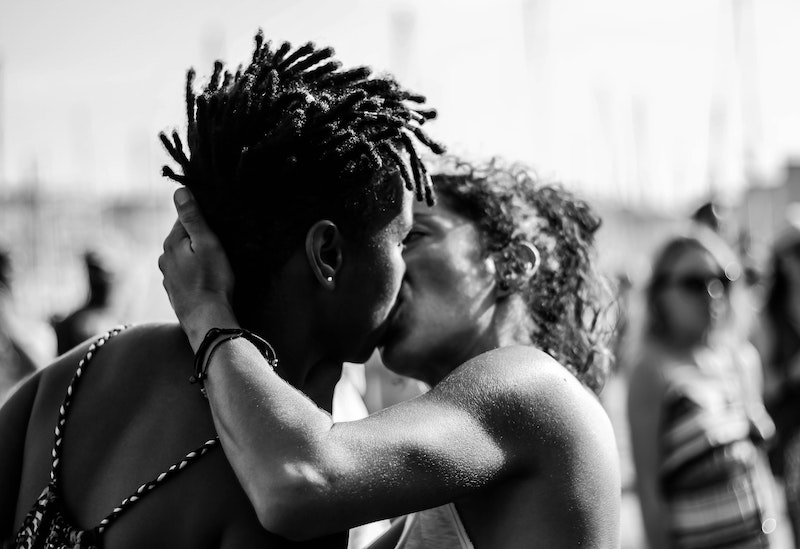Do you know your sexual rights?
21 March marks Human Rights day is South Africa. Although South Africans will always remember the Sharpville masacre and what it meant, Human Rights day goes beyond the somber memory. It is a celebration of the rights for all.
Human rights are rights that everyone should have simply because they are human. In 1948, the United Nations defined 30 articles of human rights in the Universal Declaration of Human Rights. It established universal human rights on the basis of humanity, freedom, justice, and peace.
Now sexual rights are grounded in universal human rights that are already recognised across the board. And for sexual health to be attained and maintained the sexual rights of all persons must be respected, protected and fulfilled. The World Association of Sexual Health revised the Sexual Rights Declaration in 2014. There are 16 rights in total resulting in a lengthy document. So lets focus just one few of the rights.
- The right to equality and non-discrimination
This is the primary right when it comes to sexual rights. Everyone is entitled to enjoy all sexual rights without distinction. It doesn’t matter what your sex, race, religion, sexual orientation or gender identity is. These rights apply to EVERYONE!
- The right to autonomy and bodily integrity
Everyone has the right to control and decide freely on matters related to their sexuality
and their body. This includes the choice of sexual behaviors, practices, partners and relationships. Free and informed decision making requires free and informed consent prior to any sexually-related testing, interventions, therapies, surgeries, or research. Informed consent is very important here. There are alot of sexual and reproductive tests that doctors do, make sure you understand what you are consenting to, it is your right.
- The right to be free from torture and cruel, inhuman, or degrading treatment or punishment
Everyone has the right to be free from torture and cruel, inhuman, or degrading treatment or
punishment related to sexuality, including: harmful traditional practices; forced
sterilization, contraception, or abortion; and other forms of torture, cruel, inhuman, or
degrading treatment. We often see forced sterilisations in disabled persons or where someone is infected with HIV for instance. That is not ok! Female genital mutulation is also a massive problem in many African countries, and this right should protect women from that.
- The right to be free from all forms of violence and coercion
Everyone shall be free from sexuality related violence and coercion, including: rape,
sexual abuse, sexual harassment, bullying, sexual exploitation and slavery, trafficking for
purposes of sexual exploitation, virginity testing, and violence committed because of real
or perceived sexual practices, sexual orientation, gender identity and expression, and
bodily diversity. When we look at homosexual couples ins SA we unfortunately sit with a situation where corrective rapes is often practised. Where there is a belief that if there is a person who prefers to have sex with someone of the same sex, has sex with someone from the opposite sex, they will be converted from their homosexuality. This is obviously not true at all!
- The right to privacy
Everyone has the right to privacy related to sexuality, sexual life, and choices regarding
their own body and consensual sexual relations and practices without interference and intrusion. This includes the right to control the disclosure of sexuality-related personal information to others. As parents we obviously want the best for our children, but our kids have the right to privacy. As difficult as it might be, we need to respect that.
- The right to education and the right to comprehensive sexuality education
Everyone has the right to education and comprehensive sexuality education. The ABC approach towards sex education seems very simple and it sits well with communities where abstinence is seen as the best way to protect yourself from all the terrible things associated with sex. But the latest data shows that children are having sex before the age of 16 and by the age of 18 most of them are sexually active. An abstinence only campaign is not going to change that. Rather we need to supply good information and let our kids make their own moral decisions.
- The right to decide whether to have children, the number and spacing of children, and to have the information and the means to do so
You have the right to to decide whether to have children, the number and spacing of children, and to have the information and the means to do so
Like mentioned before, sexual rights embrace certain human rights that are already recognized in national laws, international human rights documents, and other consensus documents. You have the right (free of coercion, violence, and discrimination of any kind) to the highest attainable standard of sexual health and to pursue a satisfying, safe, and pleasurable sexual life.
The full Declaration of Sexual Rights are availalble at http://www.worldsexology.org/resources/declaration-of-sexual-rights/

